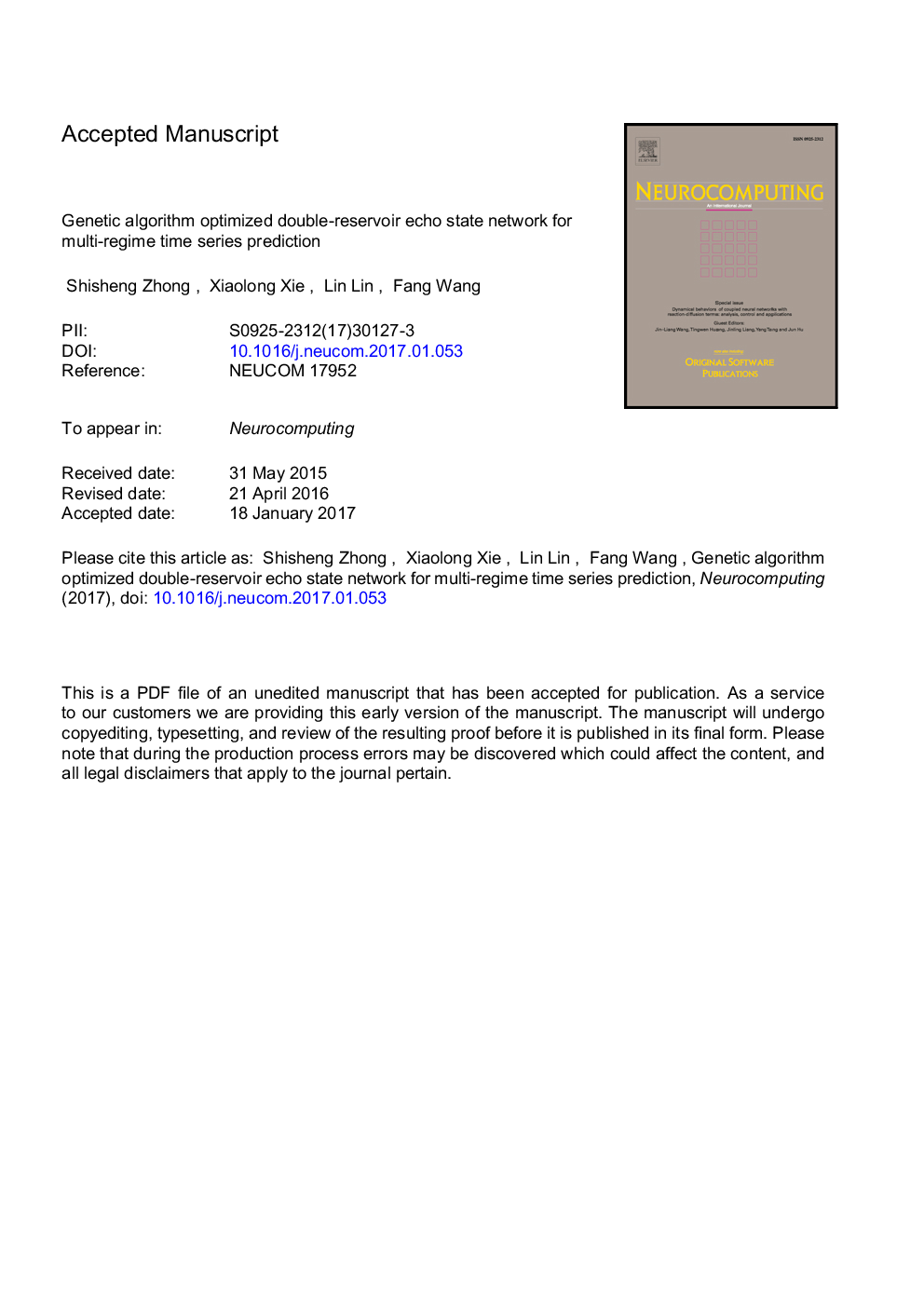| Article ID | Journal | Published Year | Pages | File Type |
|---|---|---|---|---|
| 4947618 | Neurocomputing | 2017 | 37 Pages |
Abstract
In prognostics and health management (PHM), the sensor measurement time series of equipment is collected, and predicting future sensor measurements accurately is crucial to PHM. Complex equipment is generally operated under dynamic operational conditions; thus, operational regime-switching process exists in the sensor measurement time series, which is called multi-regime time series. Different operational regimes may have various effects on time series; thus, the regime-switching process poses great challenge for multi-regime time series prediction. To predict the multi-regime time series accurately, the double-reservoir echo state network (DRESN) is adopted by modifying the conventional echo state network. The DRESN model has two input sequences: the sensor measurement sequence and regime parameter sequence, where the regime parameter reflects the operational regimes and influences sensor measurement; then, two reservoirs try to model these two sequences, respectively; last, the outputs of two reservoirs are aggregated to predict the future sensor measurement. The DRESN model not only considers previous sensor measurements but also takes the influence of regime parameters into account when predicting future sensor measurement; thus, it can improve the accuracy of multi-regime time series prediction. In addition, the training algorithm of the DRESN model is presented and only a linear regression problem needs to be solved, making the DRESN model efficient. To achieve good performance, four parameters of the DRESN model are optimized using genetic algorithm (GA) because GA is effective in solving mixed-integer problem, and the weighted cross validation is adopted in the objective function to achieve the accuracy and simplicity simultaneously. The DRESN model is applied to turbofan engine multi-regime time series and compared with other models. The results validate that the DRESN model can be accurate and stable in multi-regime time series prediction.
Related Topics
Physical Sciences and Engineering
Computer Science
Artificial Intelligence
Authors
Zhong Shisheng, Xie Xiaolong, Lin Lin, Wang Fang,
